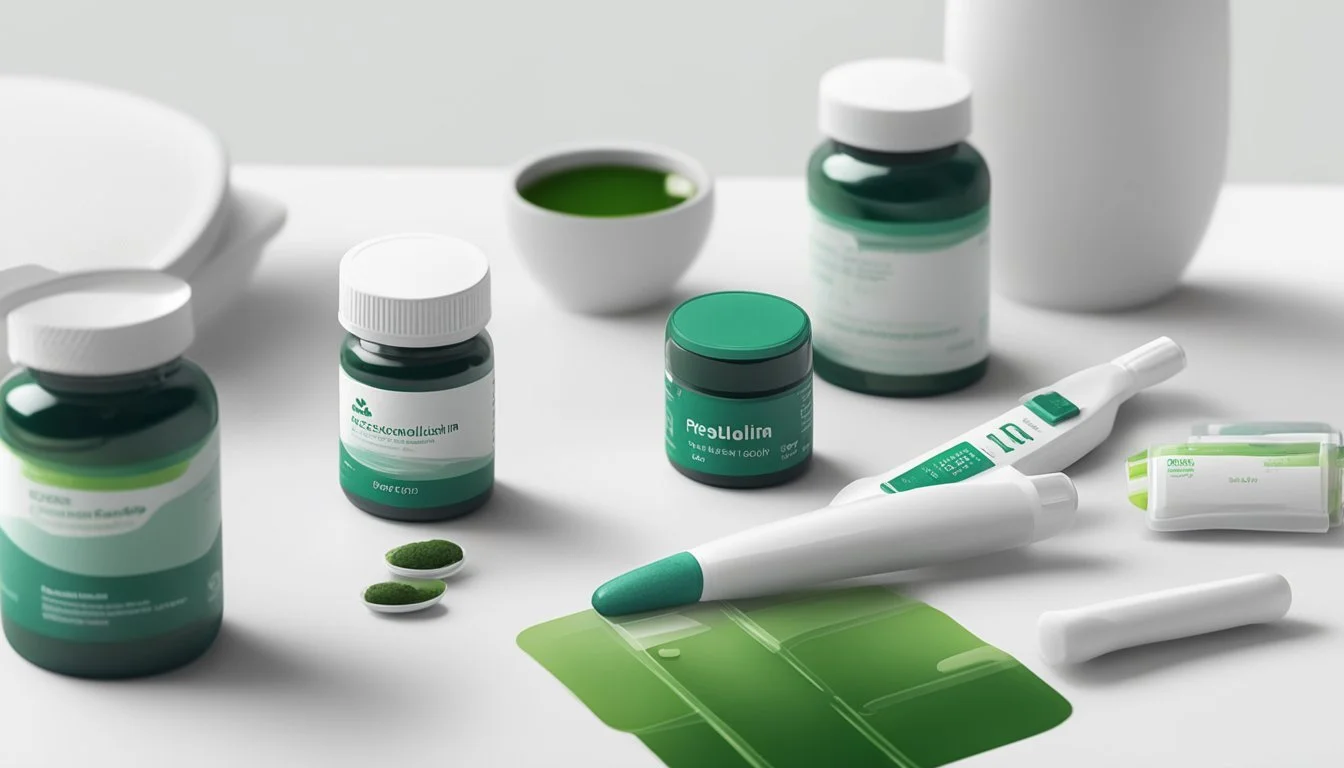Can I Take Spirulina Supplements During Pregnancy?
Understanding Dietary Safety
During pregnancy, women often seek out supplements that can support their increased nutritional needs and promote overall health. Spirulina, a type of blue-green algae, has garnered attention as a supplement because of its rich nutrient profile, which includes protein, B vitamins, copper, and iron. These elements are crucial to support a growing baby and the changes occurring in the mother's body. However, despite its nutritional benefits, the safety of taking spirulina during pregnancy remains a topic of discussion among healthcare professionals and expectant mothers.
Spirulina is generally considered safe for the general population, but because pregnancy is a delicate time, it's important to approach supplementation with caution. The concern with spirulina arises from the potential presence of contaminants such as heavy metals or harmful bacteria in the water sources where it is harvested. While high-quality supplements are typically monitored for safety and purity, ensuring that these contaminants are within safe limits, the lack of specific studies on spirulina use during pregnancy means that definitive guidance is not readily available.
Healthcare providers often advise pregnant women to focus on whole foods for their nutritional needs and to be selective with supplements. If a woman is considering spirulina as a supplement during pregnancy, it is advised to consult with a healthcare professional to evaluate the benefits against the potential risks. This professional guidance ensures that the health of both the mother and the developing fetus is safeguarded while considering the inclusion of supplements like spirulina in a pregnancy diet.
Assessing Spirulina Supplementation During Pregnancy
When considering spirulina supplementation during pregnancy, expectant mothers often evaluate the health benefits, weigh safety concerns, and look into the nutrient profile to ensure it aligns with their nutritional needs and supports fetal development.
Health Benefits for Mother and Fetus
Spirulina is a microalgae that serves as an excellent source of protein, which is crucial for the growth and development of fetal tissues, including the brain. It is also rich in essential amino acids needed for both the mother and the fetus. The high iron content in spirulina can play a significant role in preventing anemia, a common issue during pregnancy, by supporting the increase of maternal blood volume and the development of the fetus and placenta.
Safety and Potential Risks
While spirulina is generally regarded as safe, some concerns regarding purity and the presence of contaminants could pose risks. As a waterborne organism, spirulina can potentially harbor harmful bacteria and heavy metals, although high-quality supplements are typically tested to ensure safety. It is critical for pregnant women to choose spirulina products from reputable sources that adhere to rigorous testing standards.
Nutrient Profile and Nutritional Needs
Nutrient Role in Pregnancy Amount in Spirulina Protein Fetal development, tissue growth High B Vitamins Energy, nervous system health Present Iron Blood volume expansion, oxygen transport High Copper Fetal growth, nervous system Present
The table above indicates how spirulina's nutrients contribute to a healthy pregnancy. Considering the enhanced nutritional requirements during pregnancy, spirulina can be a beneficial supplement, particularly for those who may struggle to meet their nutritional needs through diet alone, such as vegetarians or vegans. However, as with all supplements, they should complement a balanced diet and be approved by a healthcare provider to ensure they meet the individual needs of the mother and fetus.
Spirulina Nutritional Content Analysis
Spirulina is a blue-green algae renowned for its dense concentration of various nutrients, making it a popular dietary supplement.
Richness in Protein, Vitamins, and Minerals
Spirulina is a substantial source of protein, with it composing about 60-70% of its dry weight. This protein is complete, containing all essential amino acids that the body requires. Aside from protein, Spirulina is rich in a variety of vitamins such as Vitamin B12, Vitamin A, and Vitamin K. It also provides crucial minerals including iron, which is vital for red blood cell production, and calcium, essential for bone health. Additionally, it contains notable amounts of magnesium and trace amounts of omega-3 fatty acids.
Presence of Antioxidants and Anti-inflammatory Compounds
The pigments in Spirulina, particularly phycocyanin, contribute not just to its distinctive color but also to its antioxidant properties. Antioxidants are crucial for neutralizing harmful free radicals in the body. Phycocyanin has also been linked to anti-inflammatory effects. Such antioxidant and anti-inflammatory compounds support the body's natural defense systems and may help combat oxidative stress.
Potential Health Concerns and Side Effects
When considering spirulina supplements during pregnancy, it is essential to be aware of potential health concerns and side effects that could affect both the mother and developing fetus. These issues range from contamination risks to interactions with medications and health conditions.
Heavy Metals and Contamination Risks
Spirulina is a type of blue-green algae that can be compromised by environmental contaminants. Heavy metals, such as lead, mercury, and arsenic, may be present in unsafe quantities if the spirulina is harvested from polluted waters. It is vital for pregnant women to ensure that their spirulina supplements have been tested and are free from such contaminants to avoid potential health risks.
Allergies and Autoimmune Reactions
Individuals with a known allergy to seafood or seaweed may experience allergic reactions to spirulina. Moreover, those with autoimmune conditions should exercise caution as spirulina can potentially stimulate the immune system, possibly exacerbating symptoms of autoimmune diseases.
Impact on Medications and Health Conditions
Spirulina supplements can interact with certain medications, including immunosuppressants and anticoagulants, affecting their efficacy. Pregnant women should consult with healthcare providers to discuss potential interactions, especially if they have pre-existing medical conditions or are on any form of medication.
Incorporating Spirulina into the Diet
When looking to incorporate spirulina into a diet during pregnancy, one has to consider the various forms it comes in and how to integrate it into meals effectively.
Spirulina in Powder, Tablet, and Food Forms
Spirulina Powder: The powdered form of spirulina is highly versatile. It can be easily mixed into liquids such as water, juice, or plant-based milks. Expectant mothers can start with a small amount, such as half a teaspoon, before gradually increasing to a suggested daily amount, paying close attention to how their body responds.
Smoothies: A popular way to utilize spirulina powder is by blending it into smoothies, which masks the flavor while providing a nutritional boost.
Pudding: Spirulina can be stirred into puddings to enrich nutritional content.
Salad Dressings: Mixing a small amount of spirulina powder into salad dressings is an effective method to incorporate it into a meal.
Spirulina Tablets: Tablets provide a convenient option with pre-measured dosages that can be taken with water.
Creating Balanced Spirulina-Enriched Meals
One's diet must remain balanced and nutritious, especially during pregnancy. Integrating spirulina should complement a diet rich in whole foods.
Food Source Integration: Spirulina can be sprinkled over the top or mixed into food sources. For example, adding spirulina to a fruit or vegetable salad can enhance nutrient intake without altering the meal's core components.
Portion Control: It's important to maintain appropriate portion sizes of spirulina to ensure the dietary blend is beneficial and not overpowering in taste.
Incorporating spirulina, whether in powder or tablet form, or as a component of a meal, offers flexibility and can contribute to a nutrient-rich diet. Expectant mothers should always consult with a healthcare provider before adding supplements to their diet.
Consulting Healthcare Providers
Before taking any dietary supplements during pregnancy, such as spirulina, it is essential that individuals consult their healthcare provider. This step is crucial to ensure the safety of both the expectant mother and the developing fetus.
When to Seek Medical Advice
Expectant mothers should seek medical advice before incorporating spirulina supplements into their diet. The consultation should occur:
Prior to beginning any new supplement, including spirulina.
If there are pre-existing medical conditions or concerns about pregnancy complications.
When an individual is unsure about the compatibility of spirulina with other medications they are taking.
Interpreting Dosage and Consumption Guidelines
Healthcare providers can offer tailored guidance on:
Appropriate Dosage: They can recommend a specific amount of spirulina that is safe for consumption during pregnancy.
Trimester Recommended Dosage First Consult doctor Second Consult doctor Third Consult doctor
Consumption Guidelines: Doctors provide important information on how to integrate spirulina with other dietary needs. They emphasize on:
Ensuring the source of spirulina is safe and free from contamination.
Understanding the interaction between spirulina and any other medication or prenatal supplements being taken.
Additional Research and Considerations
When evaluating the safety and efficacy of spirulina supplementation during pregnancy, it is essential to consider the latest research findings and the quality of supplements on the market.
Current Studies on Spirulina During Pregnancy
Research on spirulina, a type of blue-green algae, and its effects during pregnancy is not extensive. However, studies that do exist focus on its nutritional value, as spirulina is rich in protein, B vitamins, copper, and iron. These nutrients are considered beneficial for a healthy pregnancy. Some experts point out that at present there is no concrete evidence suggesting that spirulina increases the chances of conception or that it poses significant risks during pregnancy. Nevertheless, as with any dietary supplement, pregnant women should consult healthcare professionals before incorporating spirulina into their diet.
Quality and Manufacturing of Supplements
The quality and manufacturing processes of spirulina supplements are of paramount importance. Supplements are not regulated with the same rigor as pharmaceutical drugs, which means their purity and potency can vary. It is crucial for consumers to choose supplements from reputable manufacturers that adhere to high standards and are transparent about their sources and production methods. Verifying whether a supplement has undergone third-party testing can also provide additional assurance of its quality.
Research in the dietary supplement industry continually evolves, and new findings could further inform the use of spirulina during pregnancy. Pregnant individuals considering spirulina supplements should stay informed about the latest studies and prioritize products from trustworthy manufacturers.




